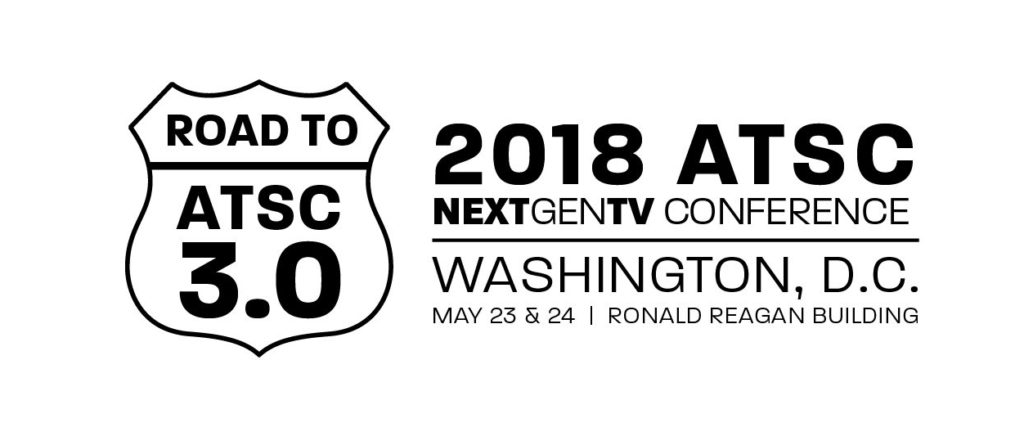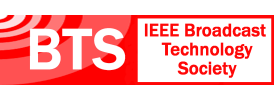- About
- Members
- Sponsors
- Subcommittees
- Technical Documents
- News
- Events
- Spotlight ATSC 3.0
- Contact Us
- Member Login
- Member Meetings
- Advanced Search
Search Site
Member Links
- About
- Members
- Sponsors
- Subcommittees
- Technical Documents
- News
- Events
- Spotlight ATSC 3.0
- Contact Us
- Member Login
- Member Meetings
- Advanced Search
The Road To ATSC 3.0 Continues At 2018 ATSC Broadcast Conference
Posted on April 19, 2018 in Press Releases
For Immediate Release
Release of ATSC 3.0 Next Gen TV Standard Spurs First Deployments, Trials, Plans for Future TV Services
WASHINGTON, April 19, 2018 – The Advanced Television Systems Committee (ATSC) today announced plans for the 2018 ATSC Broadcast Television Conference, May 23-24 in Washington. The “ATSC Next Gen TV Conference” event looks forward into the future of TV while recognizing the leadership that created digital television broadcasting and keeps it moving into the future.
“With outstanding speakers and a focus on the opportunities brought about by ATSC 3.0, we look forward to an engaging conference that will help to lead the way for how new broadcast technologies can be put to use to inform and educate viewers,” said ATSC President Mark Richer.
Keynote speakers will include:
- Dr. Jeffrey Cole of the USC Annenberg School for Communication and Journalism and Di-rector of the Center for the Digital Future will speak about the evolving role of television. Cole has testified before Congress on television issues and has spoken as at more than 200 conferences on communications issues. Over a career of nearly 30 years in academia, Dr. Cole has taught some 35,000 students.
- Pat Butler, President and CEO of America’s Public Television Stations (APTS), will address the opportunities ahead for public broadcasters with the new ATSC 3.0 broadcast standard. Butler earlier served as senior vice president of The Washington Post Company, as Washington vice president of Times Mirror, and as staff Vice President for corporate communications and government relations for RCA.
- Sam Matheny, Chief Technical Officer of the National Association of Broadcasters, the opening keynoter on May 23, has over 25 years of experience in the broadcast and data networking industries, including inventing patented mobile and interactive digital TV technologies. He leads NAB’s technology team to promote innovation and propel broadcast technology into the future, including the NAB PILOT Initiative.
Conference Registration Now Open
Registration is now open for the two-day event at Washington’s Ronald Reagan Building.
Building on the theme of Next Gen TV activities from this month’s 2018 NAB Show, “The Road to ATSC 3.0,” the conference begins with lunch on Wednesday, May 23, followed by reports on early ATSC 3.0 deployments in cities across the United States.
The first day of the conference will also include a special report on the successful launch of ATSC 3.0 broadcasting in South Korea, as well as ATSC Implementation Team updates about Advanced Emergency Alerting, Personalization and Interactivity, and Conformance.
Future Opportunities and Strategies Highlighted
Television’s future and the commercial implications of ATSC 3.0 Next Gen TV technologies will be among the subjects covered during the business-focused program on May 24. Sessions will cover ATSC 3.0 and the future of advertising and audience measurement, the role of multichannel video program distributors, augmented and virtual reality, artificial intelligence, and more.
Confirmed speakers include:
- Keith Chandler, Chief Architect, IBM Watson Media
- Lynn Claudy, Sr. Vice President of Technology for the National Association of Broadcasters
- Scott Davis, Technologist at Charter Communications
- Harold Geller, Executive Director of Ad-ID
- Marc Hand, CEO of Public Media Company and leader of the Public Media Venture Group
- John Hane, President of Spectrum Co.
- Steve Koenig, VP of Research, Consumer Technology Association
- Madeleine Noland, LG CTO’s Office, Incoming ATSC Technology Group Chair
- Arun Ramaswamy, Technology and R&D Leader at Nielsen
- Anne Schelle, Managing Director of Pearl TV
- Dave Siegler, Vice President of Techical Operations at Cox Media Group
- Pete Sockett, Director of Engineering and Operations at Capitol Broadcasting Co. WRAL-TV
- Shashi Shekhar Vempati, CEO of Indian public broadcasting agency Prasar Bharati
- Joe Winograd, Executive VP and CTO, Verance
The conference also will commemorate the 25th anniversary of the formation of the Digital HDTV Grand Alliance that brought together competing interests to create the world’s first all-digital TV broadcasting system and usher in the HDTV era.
“We’ve made a lot of progress in the past 25 years, and the rollout of the ATSC 3.0 suite of standards is proof that the work in digital TV only began with the adoption of ATSC 1.0 by the FCC. Now, we turn to the future of broadcasting that includes both over-the-air and over-the-top applications,” Richer said.
A highlight of the annual conference is the presentation of the ATSC’s highest technical honor, the Bernard J. Lechner Outstanding Contributor Award.
# # #
About the ATSC:
The Advanced Television Systems Committee is defining the future of television with the ATSC 3.0 next-generation broadcast standard. ATSC is an international, non-profit organization developing voluntary standards for digital television. The ATSC’s 150-plus member organizations represent the broadcast, broadcast equipment, motion picture, consumer electronics, computer, cable, satellite, and semiconductor industries. For more information visit atscnextgentv.vp77wsn4-liquidwebsites.com.
ATSC Media Contact:
Dave Arland
(317) 701-0084
Dave@ArlandCom.com
Posted in Press Releases
News Categories
News Archives
Subscribe
Subscribe to The Standard, our monthly newsletter. Learn More
Join ATSC
ATSC is a membership organization with both voting and observer categories. Voting members include corporations, nonprofit organizations, and government entities, and they participate actively in the work of ATSC. Observers are individuals or entities not eligible to be a voting member.
Subscribe to our Newsletter
Subscribe to The Standard, our monthly newsletter, to stay up-to-date with ATSC news and events around the world.
Site Links
Contact Us
Advanced Television Systems Committee, Inc.
1300 I Street NW, Suite 400E
Washington, DC 20005
Do you have questions about ATSC?
About ATSC
The Advanced Television Systems Committee, Inc., is an international, non-profit organization developing voluntary standards and recommended practices for digital terrestrial broadcasting. ATSC member organizations represent the broadcast, broadcast equipment, motion picture, consumer electronics, computer, cable, satellite, and semiconductor industries. ATSC also develops digital terrestrial broadcasting implementation strategies and supports educational activities on ATSC standards.
© 2025 ATSC


































